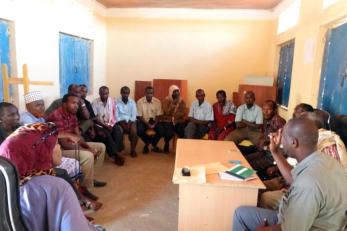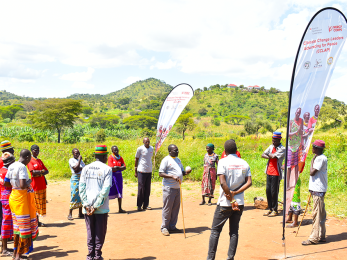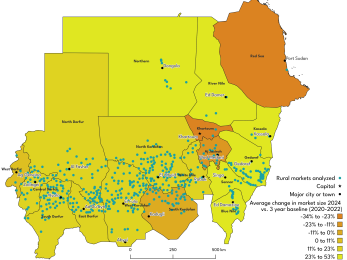Community Mobilization Sector Approach

Community Mobilization Sector Goal
Community mobilization is the process of engaging communities to identify community priorities, resources, needs and solutions in such a way as to promote representative participation, good governance, accountability and peaceful change.
Participation
With community mobilization, participation is about meeting the interests of the whole community. When every member of a community has the chance, directly or through representation, to participate in the design, implementation and monitoring of community-level initiatives, there is a higher likelihood that the program accurately reflects their real needs and interests. The approach takes into consideration the different experiences, needs and capabilities of various groups in a community – women and men, youth and the elderly, persons with disabilities and the able-bodied, ethnic/religious/language minorities and majorities. Rather than “passive participation,” we aim to inspire “self-mobilization”, where communities organize and take initiative independent of any external actors.
Accountability
Accountability is most basically the process of sharing information about actions or intentions. Groups and individuals in relationships, such as in communities, are accountable to each other when they honor their commitment to communicate plans and are responsible for what they actually do. In community mobilization, every community and all citizens have the right to know the procedures, decision-making processes and financial flows of the programs Mercy Corps implements, as well as the specific community-led projects. Mercy Corps and local partner organizations sign contracts, have open selection criteria and processes for projects, and require documentation and tracking of all information to keep the exchange of information open. Transparency helps ensure that decisions that affect the community are made in a socially responsible way – that particular groups, such as ethnic minorities or persons with disabilities, are not excluded from the benefits of projects or activities.
Good Governance
Governance, in general, relates to the process of decision-making and how those decisions are implemented. Accountability is an essential characteristic of good governance, where leaders are accountable for their decisions to people affected by those decisions. When these processes are institutionalized they become a system of government. Governance is good when it is accountable, transparent, just, responsive and participatory. Good governance is a goal of community mobilization, plus a condition for all development initiatives to be sustainable. In a country like Indonesia, established and functioning government structures exist throughout the country. Long-term programs work with local government or national agencies as full partners in all Mercy Corps-Indonesia mobilization programs. By contrast, in Somalia, where there is not a functioning government presence in much of the country, Mercy Corps works closely with local leaders acknowledged by the community for the role they play in decision-making. Mobilization activities in these contexts can build the foundation for good governance.
Peaceful Change
By focusing on societies in transition, Mercy Corps is often working in conflict-affected contexts and those undergoing significant socio-economic change. Community mobilization efforts must take conflict dynamics and even positive tensions into account. Which projects can best build on connections across communities instead of fuelling tensions? How does a project impact perceptions of disparity and access? What precautions do we need to take? Dialogue and transparency promote a certain degree of confidence and reduce friction. However, care must be taken to mitigate the potential negative impacts of all community mobilization activities. These are the main points of the “Do No Harm” concept and apply to all communities. It is Mercy Corps’ responsibility to avoid the pitfalls of jealousy and competition over scarce resources within communities, which can happen when aid or development opportunities are not carefully planned and communicated.


